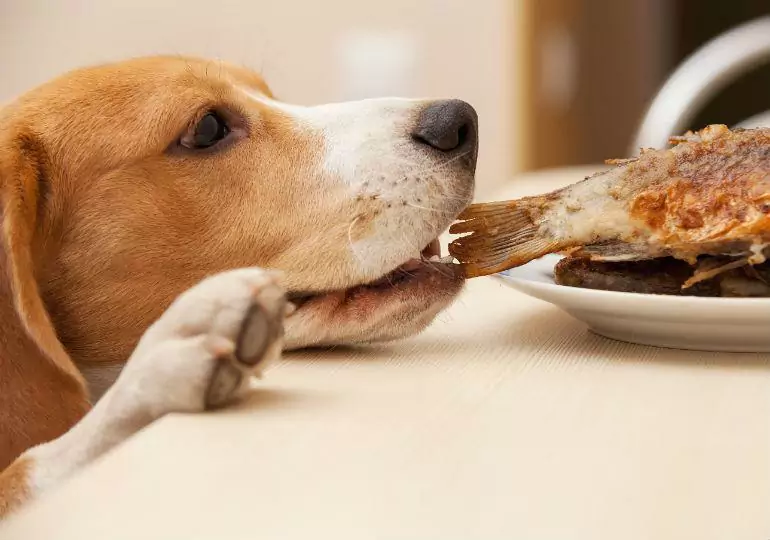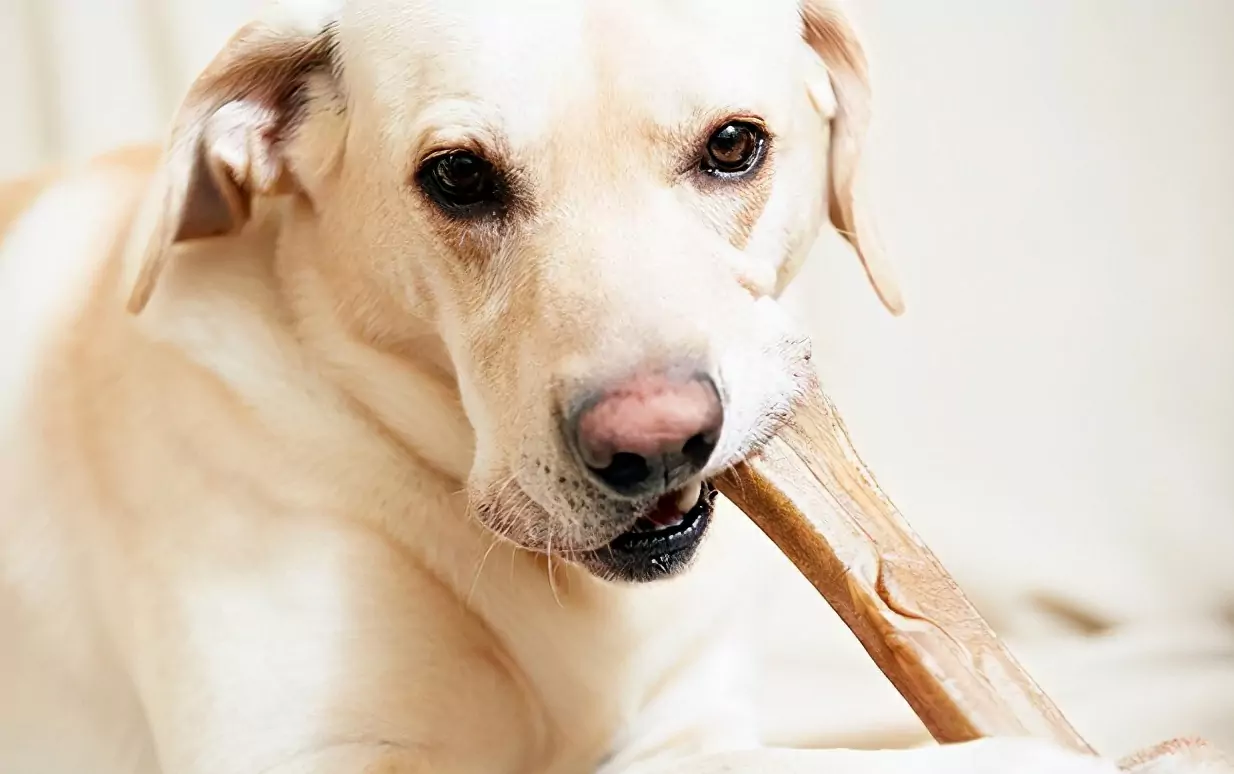Can dogs eat cheese? What are the benefits of giving cheese to dogs?
2022-06-22
Many people who have dogs at home like to share their food with their dogs. We, humans, know how to read food labels to understand and select foods, and our dogs trust us and often eat what we give them without fear. However, it is not safe for our dogs if we feed them food before we know it well. Cheese is a popular food, and many people have cheese in their homes. But can dogs eat cheese?
Cheese is a dairy product made from the milk of animals, usually cow's milk or sometimes goat or sheep's milk. Cheese has a variety of textures and flavors due to differences in the coagulation of milk proteins and the amount of fat in the milk. According to the International Dairy Association, cheese is said to have been accidentally invented by an Arabian trader 4,000 years ago. He carried milk in a bag made of sheep's stomachs that carried him across the desert. When he tried to drink the milk, he found that it had turned into curds or cheese. It is said that this was because the residual rennet, an enzyme capable of making cheese, in the sheep's stomach separated the milk into whey and curd. The merchant tried to eat the curd and found it very tasty, and that's how cheese was discovered.
The raw material for dairy products is milk, but milk was originally adapted to feed herbivore pups, so it may not be ideal if dairy products are used as a staple food for canines. Some dogs are also lactose intolerant like humans, and they may suffer from gastrointestinal distress or flatulence if they eat cheese. Such dogs have to avoid dairy products altogether. Normal dogs even have trouble digesting dairy proteins, as they may only be well adapted by calves or lambs.
You want to make sure that the cheese you give your dog is completely free of any additives. Some processed cheeses add spices such as, for example, garlic and onions, and some contain chives, such as cheese curls. These are alliums and should always be avoided by dogs.
Even for those dogs that can tolerate cheese, it is important to feed them cheese in moderation. A small piece of cheese can be a great incentive when training your dog, but you should never give him too much. Your dog may keep begging for cheese, but you can't be soft, because they don't have a grasp on moderation. Cheese contains varying levels of lactose and fat, which can make your dog sick. So no matter how much your dog begs you, you need to get the right amount and not give him too much cheese.
I. What are the benefits of giving your dog cheese?
1. Dairy products are the best choice of food for calcium, and cheese is exactly the dairy product that contains the most calcium, and this calcium is easily absorbed; it takes ten kilograms of milk to make one kilogram of natural cheese, and the calcium inside is very concentrated and easily absorbed, making it an excellent choice for supplementing calcium in puppies, young dogs, adult dogs, older dogs, and impregnated dogs. Cheese also has no lactose and will not cause lactose intolerance or allergies in dogs, which is often referred to as diarrhea in dogs eating dairy products. The cheese will not cause diarrhea in dogs, so parents can rest assured that the use.
2, cheese can be supplemented with high-quality protein. The cheese inside the protein is basically high-quality milk protein, and after the fermentation bacteria, fermentation protein decomposition is more easily absorbed by the dog. Cheese can also enhance the dog's ability to resist disease, promote metabolism, enhance vitality, protect eye health and maintain healthy skin while having a beautiful coat!
3. Cheese contains many kinds of vitamins. Cheese has many kinds of fat-soluble vitamins inside, and the content is very rich. For example, vitamin A, vitamin D, etc., vitamin A and D are to promote the absorption of calcium, which allows parents do not need to repeat the purchase of cod liver oil such as other vitamin AD products to assist in the absorption of calcium.
4, cheese in the lactic acid bacteria and its metabolites have a certain health effect on dogs, and is conducive to maintaining the stability and balance of the normal flora in the intestinal tract of dogs, to prevent constipation and diarrhea;
5, the cheese has more fat and calories, but its cholesterol content is relatively low, which also has a beneficial effect on cardiovascular health;
6, British dentists believe that cheese can help prevent dental caries, eating food containing cheese can greatly increase the calcium content of the surface layer of the teeth, thus playing a role in inhibiting the occurrence of dental caries.
Cheese therapeutic effect: sweet and sour taste, flat nature; has the effect of the tonic lung, moistening intestine, nourishing Yin, thirst; treating deficiency heat and thirst, dry intestine and difficult stool, withered skin, addictive rash, and itching.
What are the benefits of eating cheese for puppies?
Puppies are growing and need adequate and comprehensive nutritional supplements. Cheese is a highly nutrient-dense and easily absorbed food, and the calcium and protein in it are especially beneficial to the healthy growth of puppies. Cheese is rich in calcium (six times the calcium content of milk) and contains the right proportion of phosphorus and vitamin D, so the calcium in cheese is easily absorbed by the body. Regular consumption of cheese can promote the growth and development of bones and teeth in puppies. In addition, cheese consumption can prevent tooth demineralization, and it can reduce the acidity of dental plaque and inhibit the growth of oral bacteria, thus playing a role in preventing dental caries.
What are the benefits of eating cheese for young dogs?
Young dogs are very prone to hunger during the period of rapid growth, and we all know that if we can't give the dog satisfaction and satiety, it may cause the dog to be indiscriminately Ken a pass and growth and development. Cheese is rich in protein, fat, minerals, and vitamins, and is the most nutritionally complete single food, the most ideal energy supplement food for young dogs. Cheese is rich in vitamin A and carotene.
What are the benefits of cheese for older dogs?
Cheese is the best calcium supplement for older dogs. Older dogs are less active, and various organs in their bodies are beginning to age, making them susceptible to osteoporosis. At the same time, the food intake of senior dogs is decreasing and their digestive ability is weakening, so it is necessary to consume food with high calcium content and easy to digest and absorb to meet the body's need for calcium. Cheese is the best choice. The calcium content of cheese is six times higher than that of milk, and the cheese protein contains all the essential amino acids required by dogs and is easily digested and absorbed (with a digestibility rate close to 100%). Cheese is also rich in minerals and vitamins, making it ideal for replenishing the body of older dogs.

II. Precautions for dogs eating cheese
1銆丄 small amount of trial feeding
The dog can eat cheese also depends on the body, some dogs will not have the ability to digest cheese, and people will have an intolerance, so in order to avoid diarrhea and other abnormalities after eating, the owner had better try to feed a little bit, to confirm that the dog ate the body is normal, you can continue to feed.
2, do not feed chilled
Cheese contains a variety of vitamins, proteins, fats, calcium, phosphorus, and other nutrients, for dogs to supplement and promote the absorption of calcium, to help the gastrointestinal digestion has a very good role. But just from the refrigerator the cheese, can not be immediately giving the dog to eat, the dog will eat diarrhea, vomit.
Was this article helpful to you?
Other links in this article
português (Brasil):
Os cães podem comer queijo? Quais são os benefícios de dar queijo aos cães?
中文简体:
狗能吃奶酪吗?给狗狗吃奶酪的好处有哪些?
中文繁体:
狗能吃奶酪嗎?給狗狗吃奶酪的好處有哪些?
Comments

Is a dog's mouth cleaner than a human's? Dogs' mouths need regular cleaning
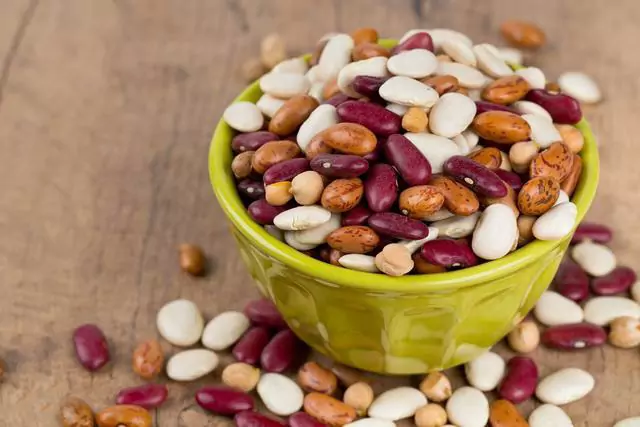
Can dogs eat beans? Do dogs eat beans for health?

Can dogs eat lemons? Fruits that dogs should not eat more of

Do dogs have nightmares? Are dogs' dreams similar to humans'?
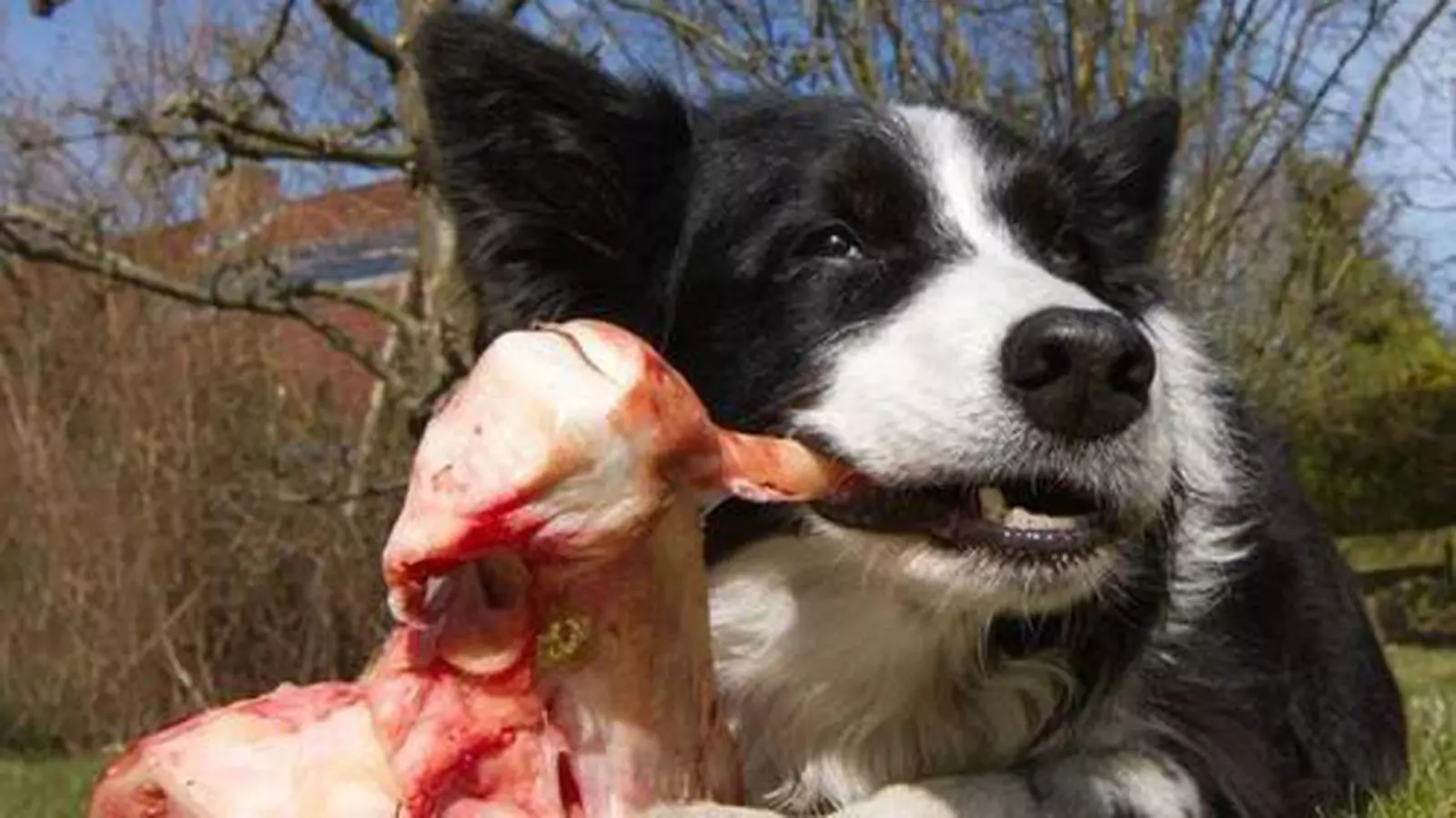
Can dogs eat raw beef? The benefits and drawbacks of beef for dogs
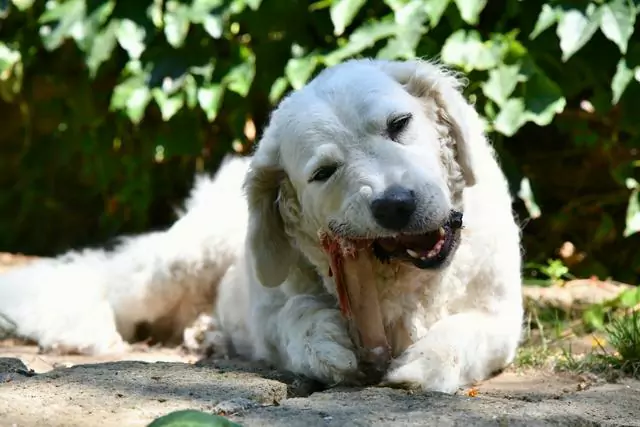
Is raw meat good for dogs? Can dogs eat raw chicken?

Can dogs eat pomegranates?

Can dogs eat ham?Can all types of ham hocks be eaten?

How to give a dog a bath

Can dogs eat kimchi?








